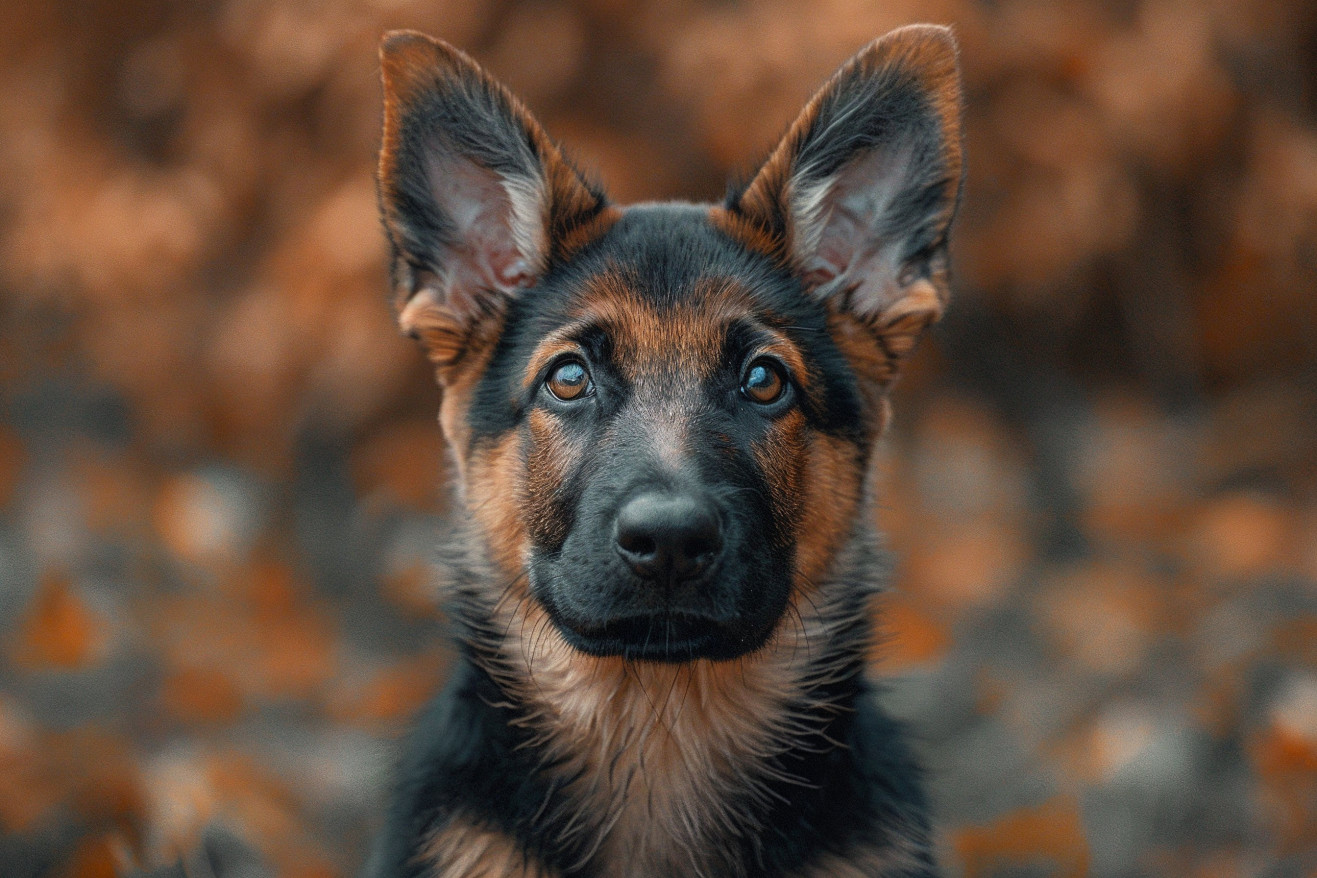When Do German Shepherd Ears Stand Up? A Guide for New Owners
20 April 2024 • Updated 19 April 2024

As you watch your sweet German Shepherd puppy grow, you can expect their floppy ears to stand up within a certain age range -- but there are a few things that will determine exactly when this will happen. On average, German Shepherd puppies' ears will stand up between 4-7 months of age. That said, larger dogs and males tend to take a bit longer, closer to 6-8 months, while smaller females may have their ears stand up as early as 3-5 months. Ear strength, exercise, nutrition and genetics all factor into when your pup's ears will stand up.
To get a better sense of when your dog's ears will stand up, let's take a look at the most recent veterinary research and advice from experienced breeders on when German Shepherd ears stand up. We'll cover the most important milestones, health factors like teething and diet, and even some tips that may help you get those ears to stand up a little bit faster.
At what age do German Shepherd puppy ears typically stand up?
Ear Development Timeline
German Shepherd puppies are born with floppy ears that will eventually stand up. However, as Sequoyah German Shepherds points out, some puppies may have their ears up by 4 weeks old, while others may not have their ears up until they are 4-5 months old. By 8-12 weeks, you may see one ear standing up while the other is down, or both ears may be starting to stand up at the same time, says Tryfi.
That said, the first time the ears stand up isn’t a hard and fast rule. During the teething period, which occurs between 4-5 months old, the ears may fall back down. This is because, as Pedigree explains, when puppies are teething between 16-20 weeks old, the cartilage becomes softer, which causes the ears to fall back down until teething is over.
Most German Shepherds will have their ears fully erect and in their adult shape and size by the time they are 4-6 months old. However, due to genetic differences and other developmental factors, some puppies may not have their ears fully up until they are 7-8 months old, says GSD Colony. That said, while the timeline can vary, the majority of German Shepherds will have their iconic pointy ears by the time they are 6 months old.
Genetics and Other Factors
Genetics are a big part of when a German Shepherd's ears will stand up. As Tryfi explains, puppies born from parents with early-standing ears are more likely to have their ears stand up earlier. Good nutrition, including calcium and other important vitamins and minerals, also helps with ear development, according to PetHelpful. Exercise and muscle development can also help the ears stand up, according to SpiritDog Training.
On the other hand, things like ear trauma, allergies, or infections can cause a delay in ear erectness or prevent the ears from standing up altogether, according to Pedigree Database. It's important to make sure that you're taking care of your dog's ears to make sure that they can stand up.
Ear Cleaning and Maintenance
German Shepherds need regular ear cleanings to keep their ears healthy and prevent infections. According to the German Shepherd Shop, German Shepherds are especially prone to allergies and other skin issues that can cause yeast infections and bacterial infections in the ear canal. The American Kennel Club warns against using any ear cleaning solutions that haven't been approved by a vet and says that you should never use any harsh chemicals or cotton swabs that can cause damage or push debris further into the ear.
To clean a German Shepherd's ears, the iHeartDogs recommends massaging the base of the ear and letting the dog shake the solution out. After cleaning, look for signs of infection, including redness, odor, or discharge, and see a vet if you notice any of these symptoms. Good general hygiene and managing allergies can also help prevent ear problems in German Shepherds.
Methods to Help the Ears Stand Up
If a German Shepherd's ears haven't stood up on their own by the time the dog is 5 months old, it may be time to intervene. According to PetHelpful, giving the dog the right things to chew on can help strengthen the muscles and cartilage in the ears. Meanwhile, the German Shepherd Shop suggests ear taping or posting, which involves using surgical tape and foam rollers to help the ears stay in the right position.
This should be done with the help of a vet and within the 5-7 month window, according to Leerburg. It's also important to make sure the ears don't get injured and to keep the dog in a low-stress environment with a good diet, as pointed out by WikiHow.
Final Remarks: Understanding German Shepherd Ear Development
While floppy ears themselves are not a problem for German Shepherds, they can make dogs more susceptible to certain ear issues, according to the Merck Veterinary Manual. Floppy ears can make it easier for moisture and debris to become trapped in the ear, which can lead to infections and other problems. Dogs with floppy ears are also more likely to get ear mites and other ear-related issues like allergies.
In extreme cases, very floppy ears can even lead to hearing loss or discomfort for the dog, as pointed out by SpiritDog Training. However, regular ear cleaning and care can help prevent these issues in German Shepherds with floppy ears. With proper care and attention, the shape of a German Shepherd's ears shouldn't be a problem.
Ultimately, floppy or erect ears do not affect a German Shepherd's temperament or overall well-being.


